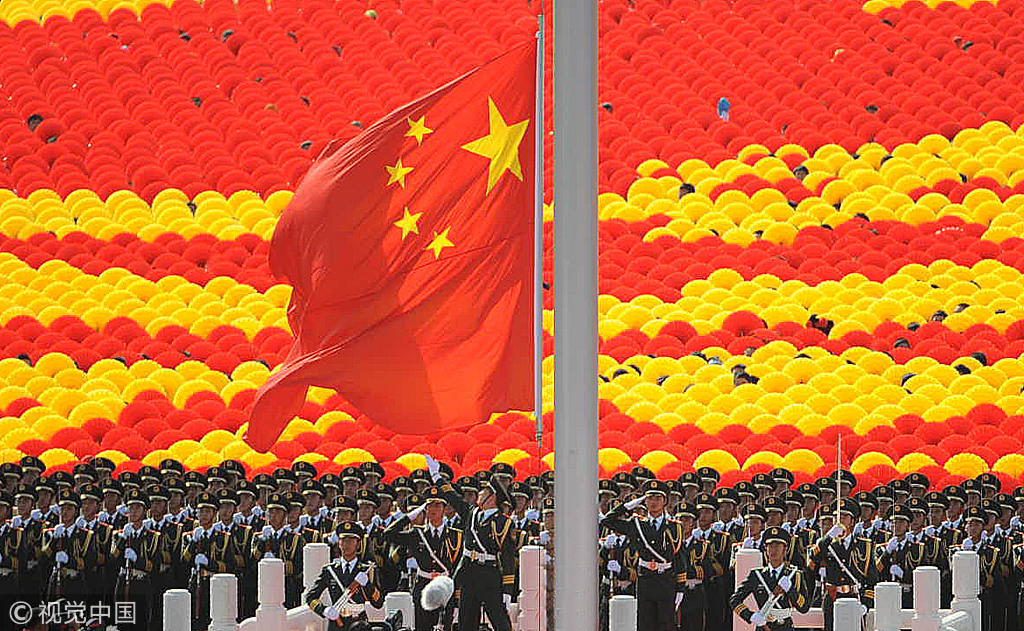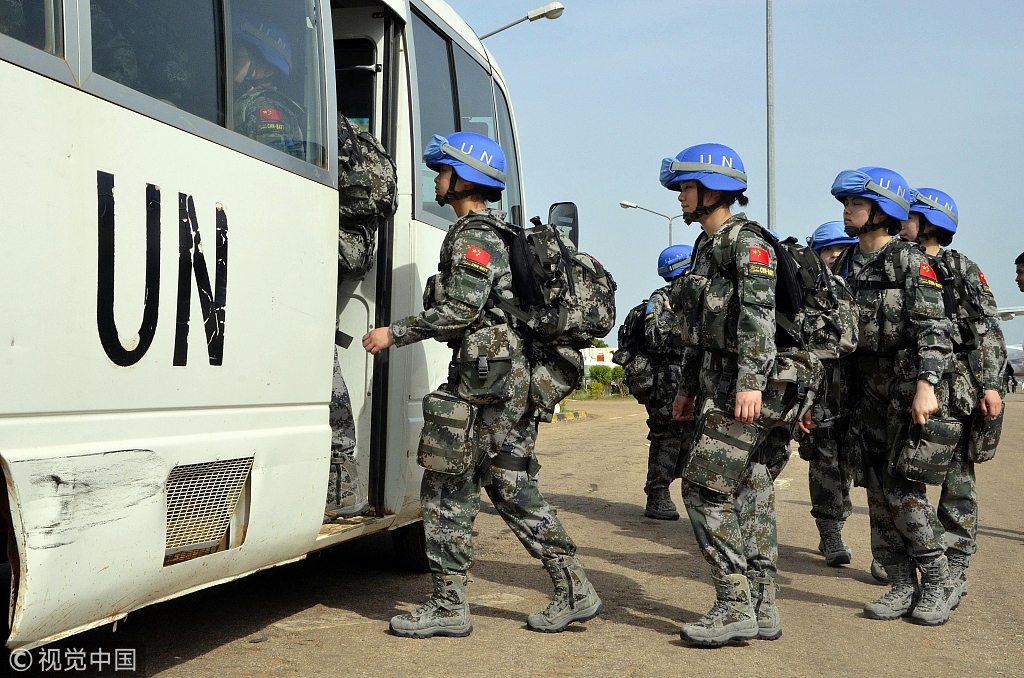In 2019, China's national defense expenditure increased by 7.5 percent compared with that in 2018. After double-digit growth for five consecutive years from 2011 to 2015, defense budget's increases have slowed to single digits since 2016 (7.6 percent in 2016, 7 percent in 2017, and 8.1 percent in 2018) due to the military reform.
What does growth mean? When hesitating on whether to believe the "China threat theory", people should look at Chinese military spending through a historical perspective.
China has to make efforts to strengthen its military capabilities, just like late students have to make up his missing lessons. The modernization of the People's Liberation Army of China (PLA) was almost stagnant since Sino-Soviet relations deteriorated in the early 1960s.
The following "Cultural Revolution" also eroded the PLA's military readiness and organizational integrity. Between 1979 and 1996, as China shifted its focus to domestic reform and economic construction, the PLA and China's defense industry experienced an even more difficult time.
During the 15-year budget tightening period, the PLA and defense industry were forced to tighten their belts, canceled most of its procurement and R&D programs of the modern weapon system and froze the scales of personnel and training spending.

The 60th anniversary of the founding of the People's Republic of China held in Beijing, October 1, 2009. /VCG Photo
The modernization process of the Chinese military was lagged behind not only other permanent members of the UN Security Council but also many neighbors in the whole 1990s.
Most of the main combat systems in the PLA were obsolete, while the level of living, training and military readiness dropped dramatically. The budget starvation also destroyed many military factories.
At that time, there was a famous saying that it is better to sell tea eggs than to build missiles. In the 1996 Taiwan Strait crisis and the 1999 South China Sea collision incident, the PLA was still equipped with weapons of the 1950s.
In this regard, one of the main aims of China's current military spending growth is to compensate for the historical gap. The PLA not only needs to purchase modern weapon systems for the services but also invests in training and exercises to make the troops better adapt to this new equipment.
In addition to improving combat effectiveness, Chinese military must also enhance the living conditions and incomes of its troops.
Compared with the past, China has played an increasingly responsible role on the global stage. The PLA has taken an increasing number of responsibilities to provide public security products for the international community.

Chinese peacekeeping troops, the last detachment of the country's first deployment of a full infantry battalion for a UN peacekeeping mission, arrive at Juba International Airport, April 8, 2015./VCG Photo
China has contributed the largest number of UN peacekeeping troops and the number of Chinese peacekeeping troops exceeds the total number of other permanent members of the UN Security Council.
The PLA has joined the Multi-national Somali anti-piracy joint escort operation since 2008. In the past 10 years, the Chinese Navy has sent 31 escort fleets to the Gulf of Aden and waters off Somalia and escorted 3,400 foreign ships.
The escort fleets also escorted ships transporting chemical weapons out of Syria and delivering Humanitarian supplies to Somalia, carried out missions such as the search and rescue of Malaysia Airlines, and emergency water supply for the Maldives, and urgently evacuated 683 overseas Chinese and 279 foreign citizens from the Yemen War.
Whether a country would pose a military threat to other countries depends on its foreign and defense policies, rather than how much it will increase its defense spending.
Editor's note: Kang Jie is an assistant research fellow at the China Institute of International Studies. The article reflects the author's opinion, and not necessarily the views of CGTN.









